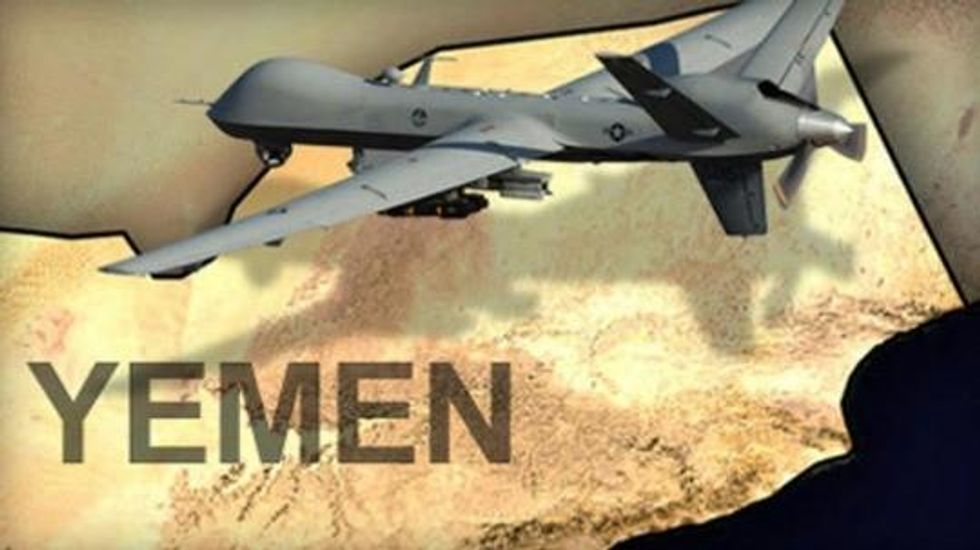Following reports of two US drone bombings in Yemen on Wednesday, a deeper look at the situation in the country reveals just how little critical reporting is done in the aftermath of such airstrikes in a country that few Western readers well understand.
While prominent news outlets reported that "unnamed officials" speaking "on the condition of anonymity" claim the bombings killed "suspected Al Qaeda operatives," more critical observers of the developments--and the press treatment they received--used the episode to make deeper comments about the role of the US drone program abroad.
According to a widely reprinted Associated Press report:
Four were killed in the first strike while riding a vehicle in the desert area of Oussab al-Ali, about 90 miles south of Sana, the official said.
The second strike killed a fifth suspected jihadist, Hamed Radman. A drone bombed his house, the official said.
Radman is known to security authorities as an influential al Qaeda member and played a role in recruitment, he said.
A witness in a nearby village said he saw columns of smoke rising after two explosions rocked the area.
The region south of the Yemeni capital has become a hideout for the militants.
He said that US drones have been flying over his village for three days and are still in the sky.
Responding to the news, however, investigative journalist Jeremy Scahill tweeted:
Scahill has been a vocal critic of the US drone program in Yemen and elsewhere. His upcoming book, Dirty Wars, is an in-depth look at the covert wars of the US military and intelligence agencies in the post-9/11 era.
In addition, Scahill retweeted this from Farea Al-muslimi, a English-speaking Yemeni who lives in the village where the strikes took place:
Giving a Yemeni perspective on the events, Al-muslimi continued to tweet from Wednesday into Thursday, responding to online chatter about the attacks and pointing out inconsistencies of official accounts and commenting on the manner in which the details of the story were being conveyed in Western circles:




